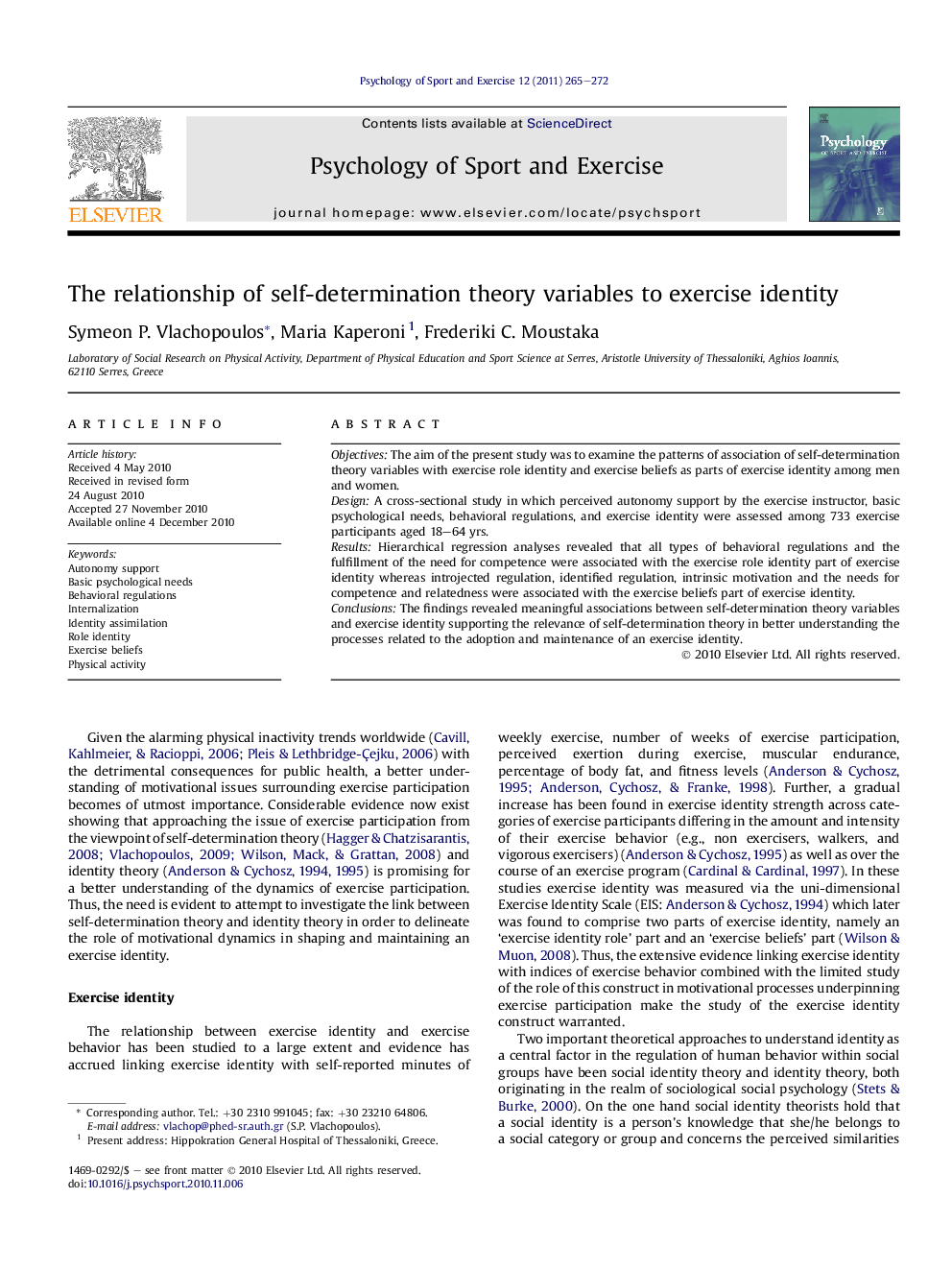| Article ID | Journal | Published Year | Pages | File Type |
|---|---|---|---|---|
| 894698 | Psychology of Sport and Exercise | 2011 | 8 Pages |
ObjectivesThe aim of the present study was to examine the patterns of association of self-determination theory variables with exercise role identity and exercise beliefs as parts of exercise identity among men and women.DesignA cross-sectional study in which perceived autonomy support by the exercise instructor, basic psychological needs, behavioral regulations, and exercise identity were assessed among 733 exercise participants aged 18–64 yrs.ResultsHierarchical regression analyses revealed that all types of behavioral regulations and the fulfillment of the need for competence were associated with the exercise role identity part of exercise identity whereas introjected regulation, identified regulation, intrinsic motivation and the needs for competence and relatedness were associated with the exercise beliefs part of exercise identity.ConclusionsThe findings revealed meaningful associations between self-determination theory variables and exercise identity supporting the relevance of self-determination theory in better understanding the processes related to the adoption and maintenance of an exercise identity.
► Self-determination theory appears promising in better understanding the mechanisms through which an exercise identity may be assimilated to the self. ► All types of exercise behavioral regulations and the basic need for competence were significantly associated with the exercise role identity part of exercise identity among adults men and women. ► Introjected regulation, identified regulation, intrinsic motivation, the need for competence and to a very small extent the need for relatedness were significantly associated with the exercise beliefs part of exercise identity among adults men and women.
